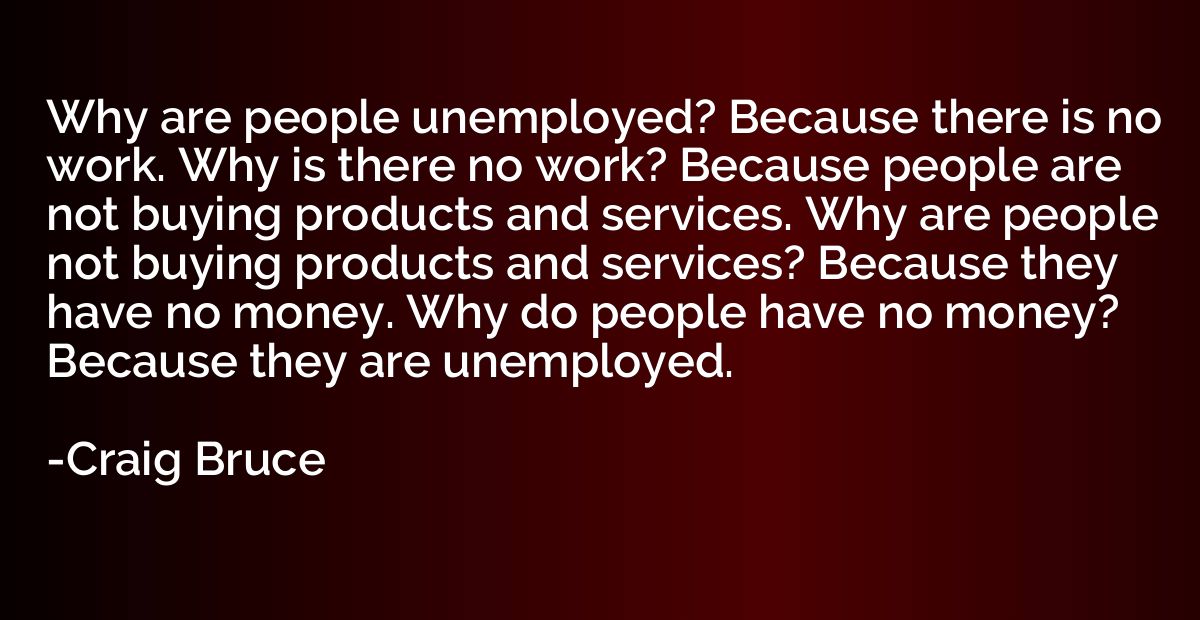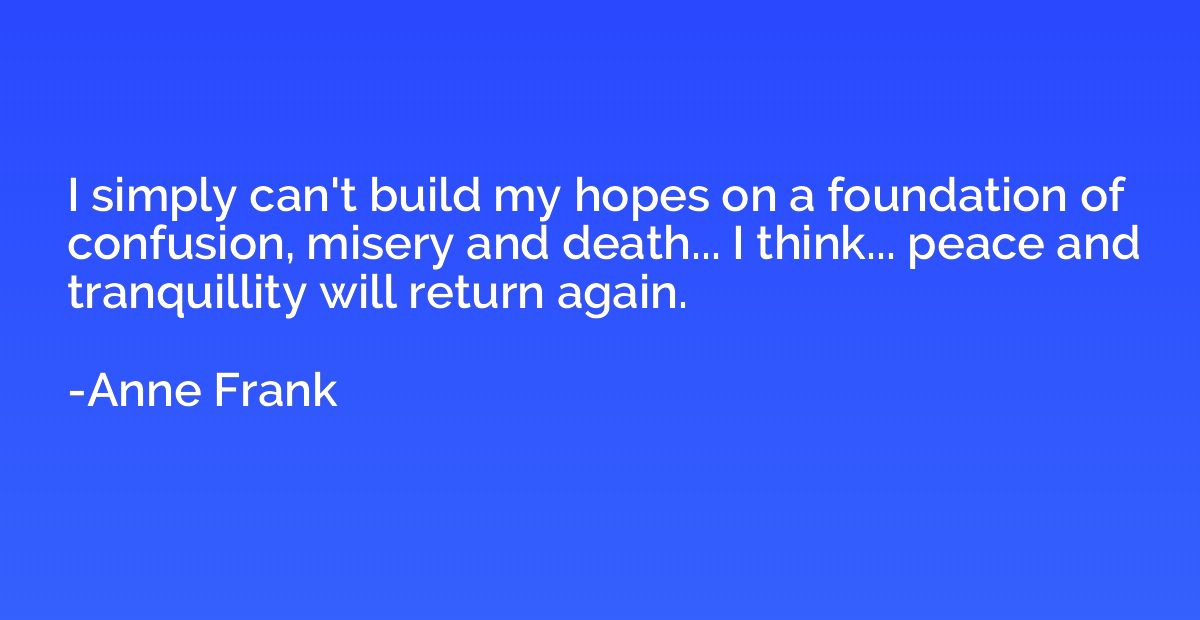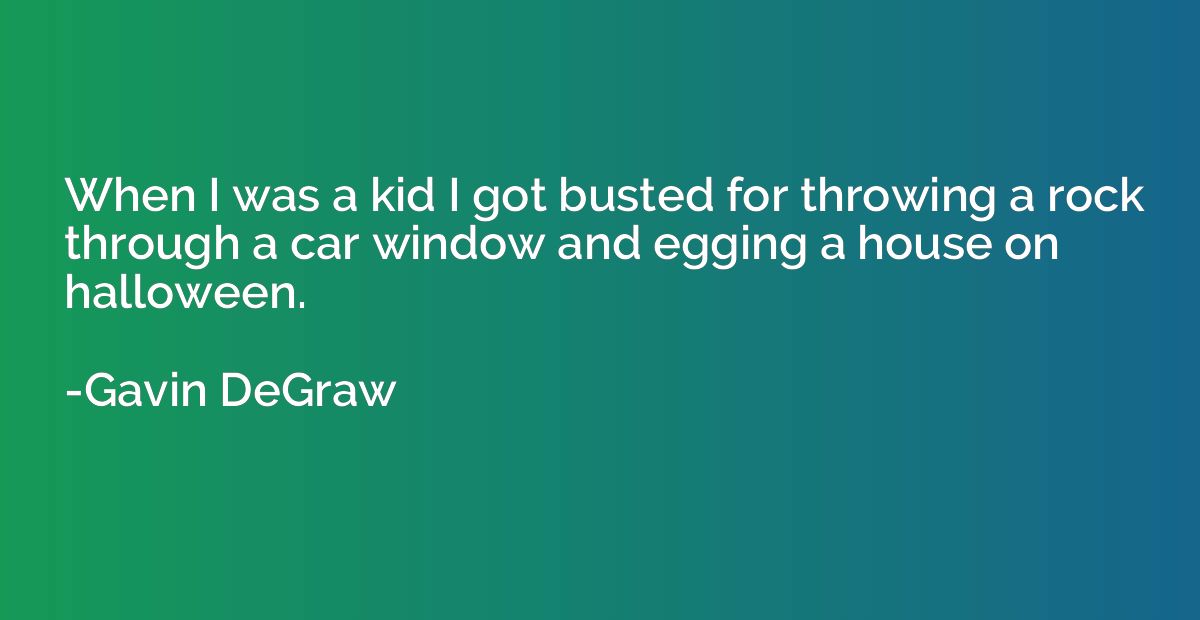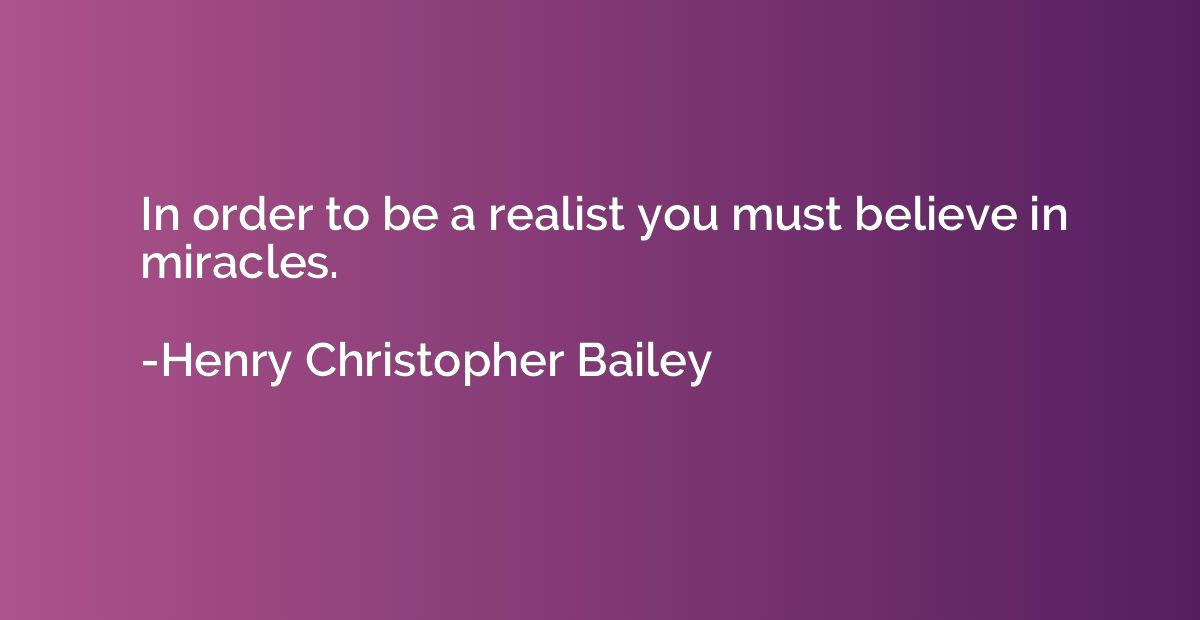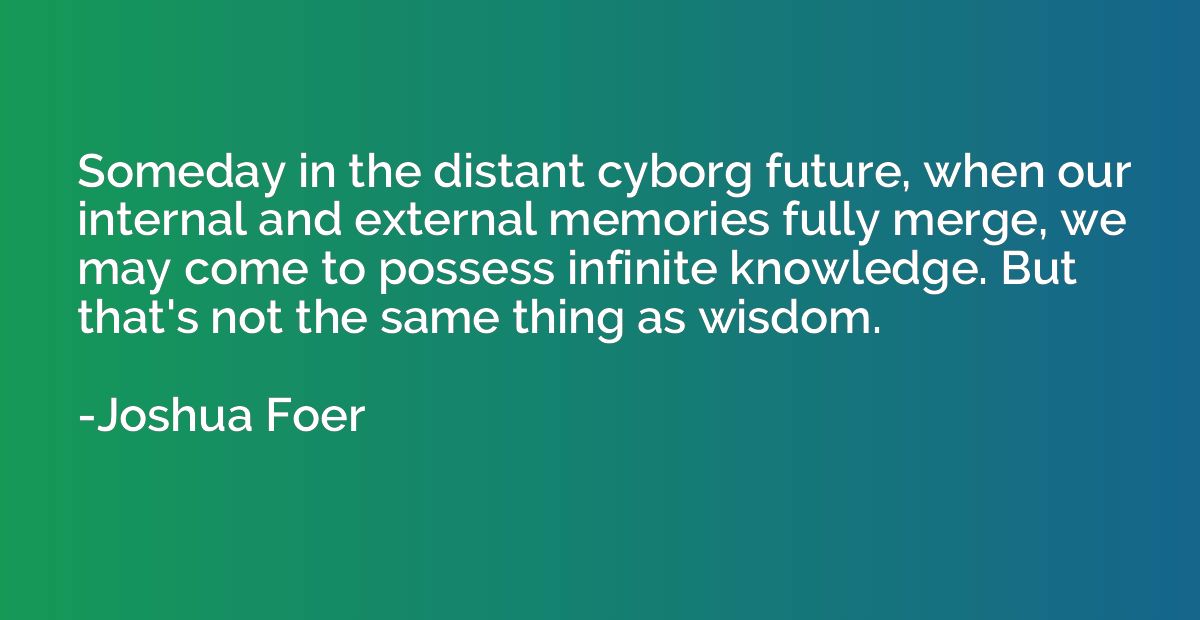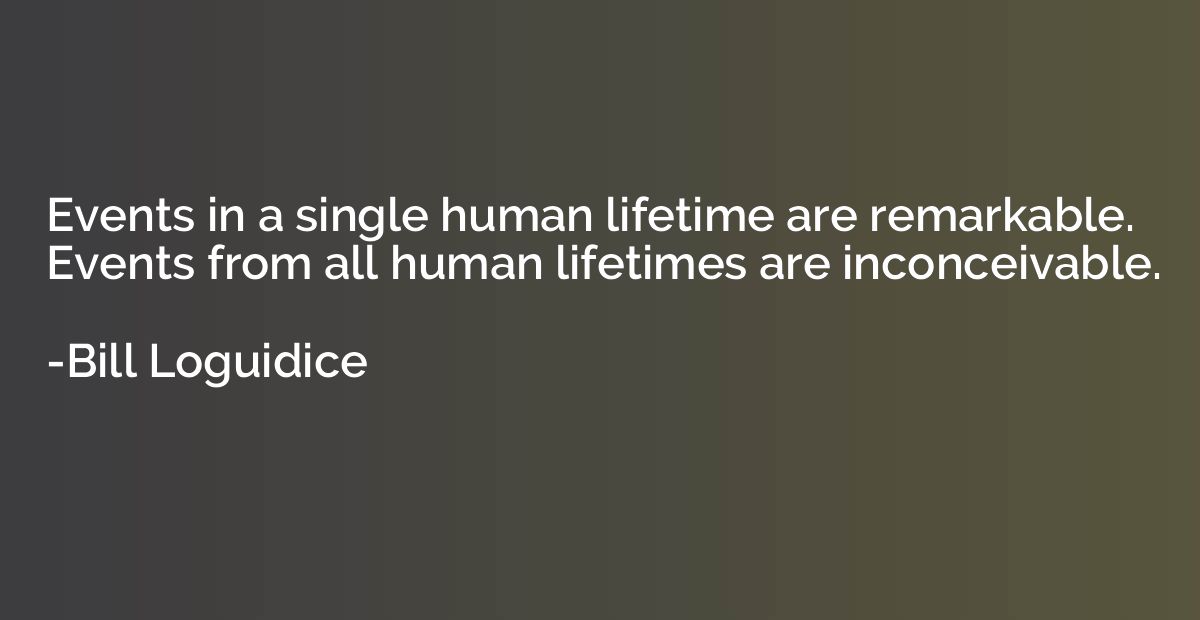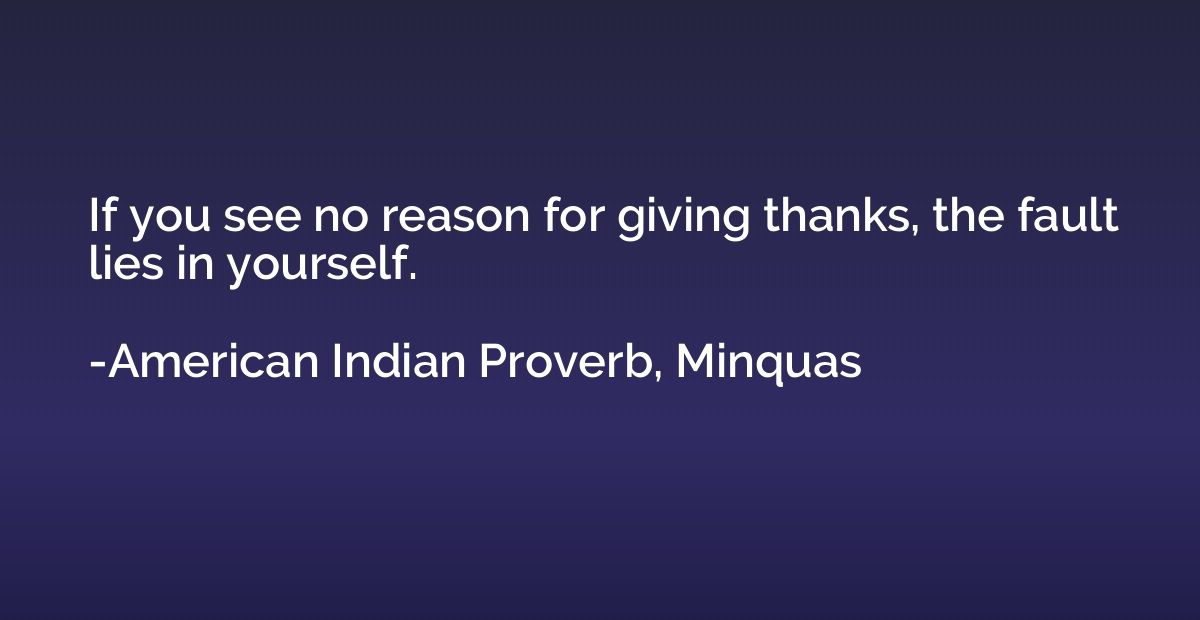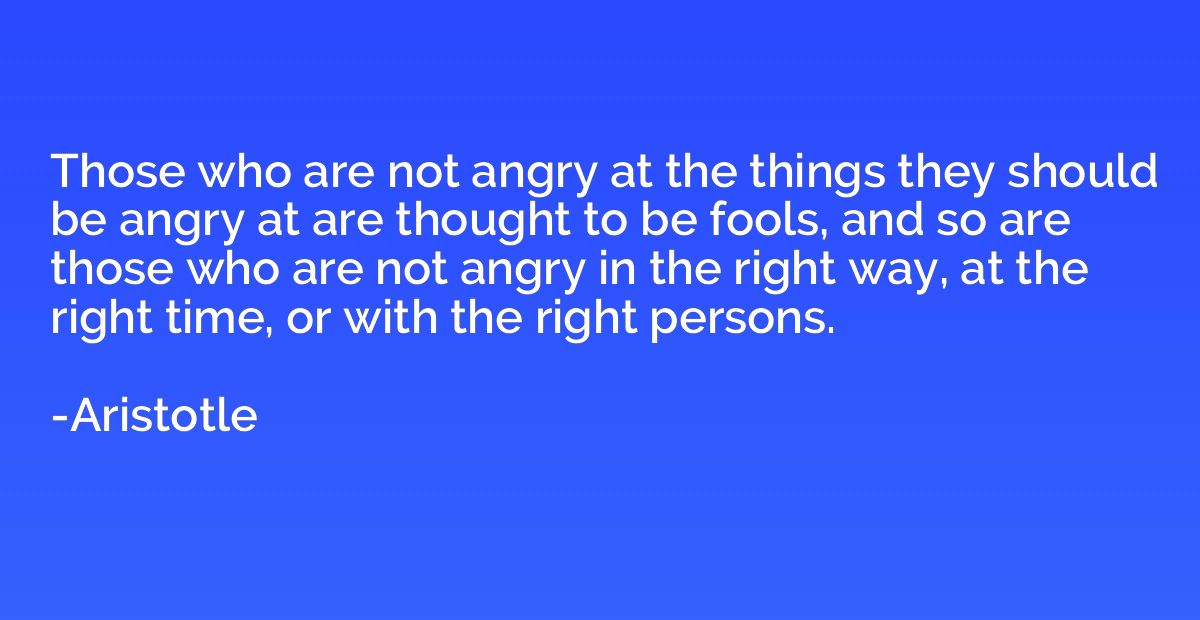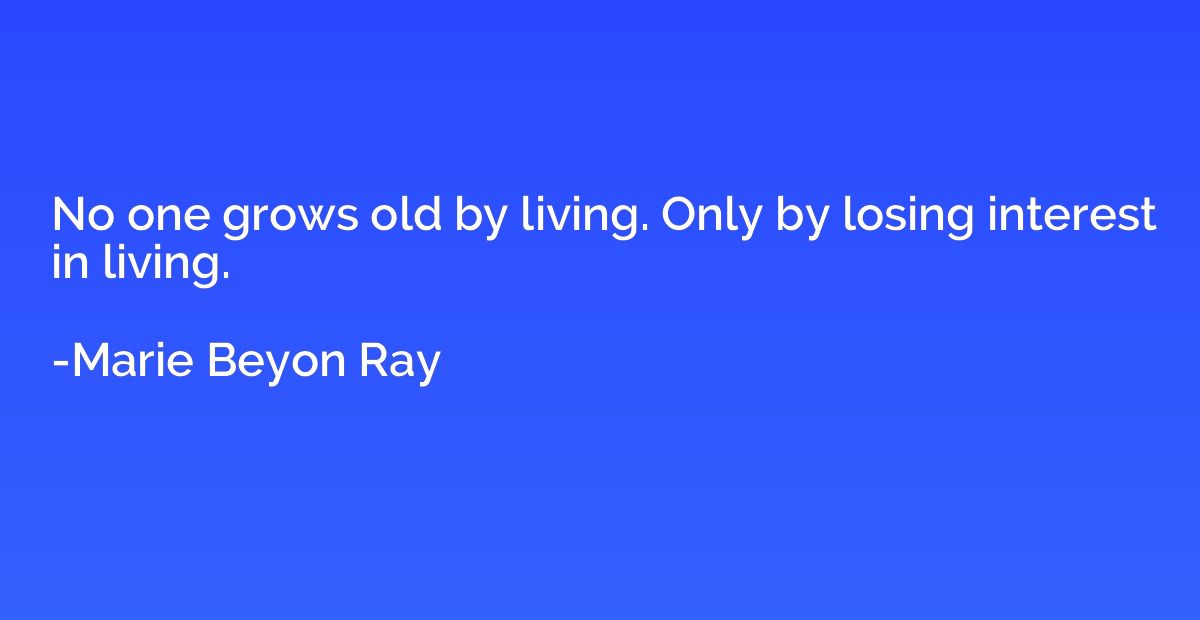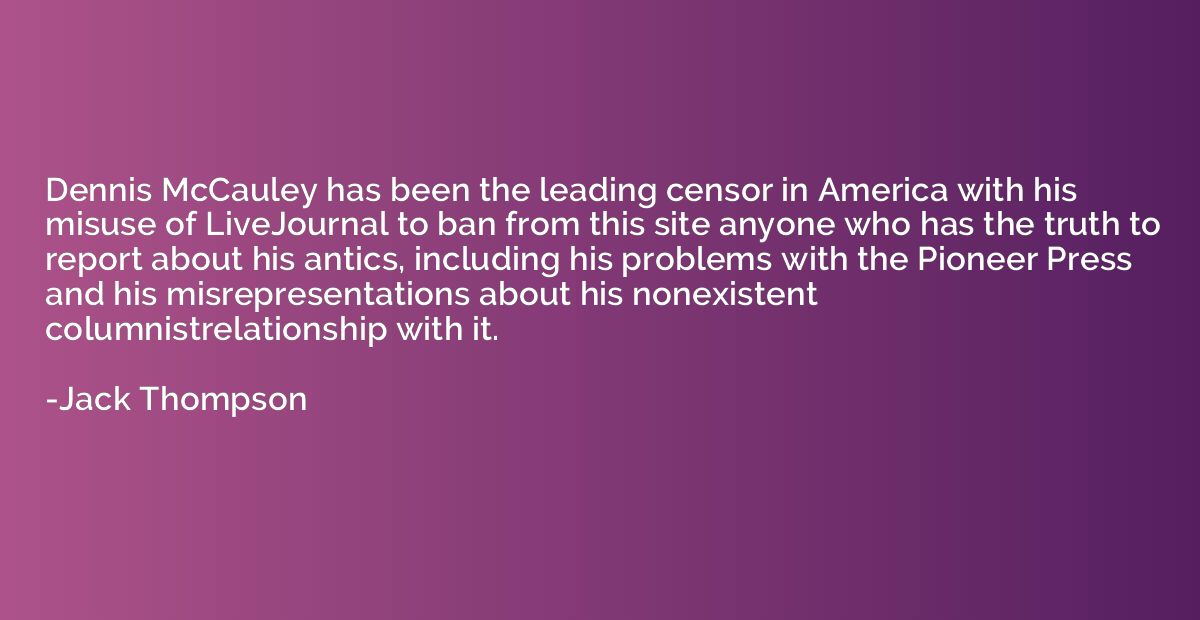Quote by Sun Tzu
Prohibit the taking of omens, and do away with superstitious doubts. Then, until death itself comes, no calamity need be feared.
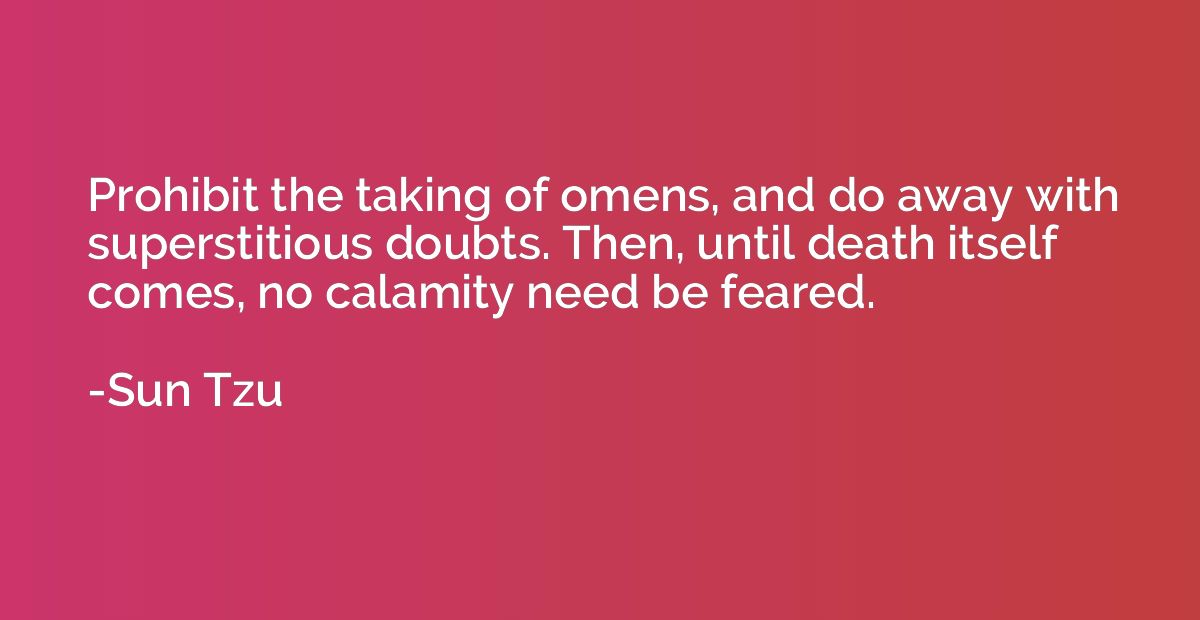
Summary
This quote emphasizes the significance of rejecting superstitious beliefs and fears associated with them. By discouraging the practice of interpreting omens and harboring irrational doubts, one can lead a life free from anxieties and apprehensions. It suggests that if individuals can overcome the grip of superstition, they can live without the constant fear of impending disasters or misfortunes. Instead, they can embrace a mindset focused on resilience and seize each day with confidence, regardless of the uncertainty that lie ahead.
Topics
Death
By Sun Tzu





